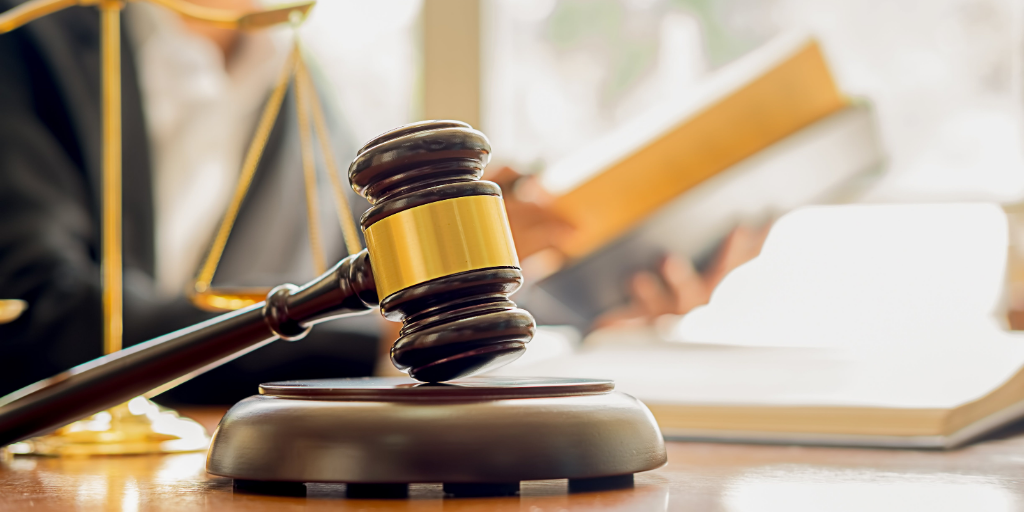What is a CCJ?

Knowing what a CCJ is and how it works is vital to manage it effectively. The impact of a CCJ can be far-reaching. It can affect your ability to get a mortgage, loan, or even some type of jobs. This blog provides you with comprehensive guidance on the entire CCJ process.
What is a CCJ?
What does a CCJ mean?
A County Court Judgment, or CCJ, is a legal decision by County Courts. It happens when you owe money and haven't paid it back. A CCJ tells you how much you owe, and sets a course for you to repay the debt. CCJs can affect your credit score and your ability to borrow money or get a mortgage in the future.
What causes a CCJ?
CCJs don't just appear out of the blue. They are the result of a legal process that starts when someone claims that you owe them money. This person can be a creditor, like a bank or a lender. Common reasons for receiving a CCJ include:
- Unpaid bills
- Credit card or loan debt
- Failing to repay money borrowed from individuals or businesses
Before a CCJ is issued, you will receive a Claim Form from the County Court. This form is your first notice that someone is taking legal action against you for money you owe. If you don't act on this form, a CCJ could be the next step.
Key terms and definitions related to CCJs
Understanding the language around CCJs is important for a comprehensive grasp of the topic. Here's a short list of key terms you should know:
- Creditor: The person or company to whom money is owed.
- Debtor: The person who owes money to a creditor.
- Claim Form: The initial document that starts the County Court Judgment process, sent by the creditor.
- Judicial: Related to the courts or legal process involved in issuing a CCJ.
What is the process of a CCJ?
Issuing a Claim Form
Receiving a County Court Claim Form does not automatically mean you have a CCJ. However, it's the first official step in the legal process that may lead to a CCJ. The creditor sends it to inform you that they are seeking legal action to recover the money you owe. The form will contain important information, including:
- The name and contact details of the creditor
- The amount of money you owe
- A reference to what the debt is for
- The deadline for your response
Ignoring a Claim Form is not advisable, as it will likely lead to a CCJ being issued against you by default without a hearing. It's crucial to act within the given time frame if you wish to dispute the claim or arrange a payment plan.
The defendant's response
After receiving a Claim Form, you have a few options to consider as the defendant. You can either:
- Pay the full amount: This is the simplest way to avoid further legal action.
- Dispute the claim: If you believe the claim is unjust, you can opt to contest it.
- Arrange a payment plan: If you admit to the debt but can't pay it in full, you might be able to set up a payment plan with the creditor.
It's crucial to respond within the deadline stated on the Claim Form. Failing to do so can result in an automatic CCJ against you.
Court hearings
In many CCJ cases, especially for undisputed debts or lack of response from the defendant, the judgment is issued without a hearing under the default judgment process. However, in some cases, a court hearing becomes necessary. This usually happens when:
- The debt is disputed and both parties cannot agree.
- The court needs more information to make a judgment.
You should attend the hearing at the designated court. It's crucial to bring all relevant documents and evidence with you. If a hearing is necessary and you do not attend, the court may make the judgment in your absence.
Here's what to expect during the hearing:
- Both parties present their case.
- The judge may ask questions for clarification.
- The court makes a judgment, either immediately or at a later date.
Court hearings can be intimidating, but they are a key part of the County Court Judgment process. Being well-prepared and understanding your rights can make the process smoother.
What are the consequences of a CCJ?
Can I get a loan with a CCJ?
Having a CCJ can make it more difficult to obtain loans or credit cards, and you may face higher interest rates or stricter terms. However, it’s not impossible to get a loan with a CCJ on your credit record. Lenders will consider your credit history and the circumstances surrounding the CCJ.
Specialist lenders, rather than high-street banks, are more likely to offer loans for bad credit to individuals with CCJs. Secured Loans can be your option as these loans use your home as security or collateral to mitigate the risk of the CCJ. Always think carefully before securing any loans against your home, especially if you already have problems with debt.
Will a CCJ affect my credit score?
CCJs can have a significant impact on your credit rating. Once a court issues a CCJ against you, it becomes part of your credit history and can substantially lower your credit score. This lowered credit score can make it more difficult for you to obtain credit in the future, such as loans, credit cards, or a mortgage.
However, if a CCJ is paid in full within one month of the judgment date, it will be removed from the Register of Judgments, Orders, and Fines and will not appear on a person’s credit file. If paid after one month, the CCJ remains on the record for six years but can be marked as "satisfied." This is slightly better for credit rating than an unsatisfied CCJ.
Will a CCJ affect my property?
A CCJ alone does not put your property at risk. However, if the creditor applies for a Charging Order and later an Order for Sale, they may attempt to recover the debt through the sale of your property. Understanding the implications of a CCJ on your property is crucial for safeguarding your assets.
Can a CCJ affect me getting a job?
A CCJ can potentially affect your job opportunities. Some employers may do full credit checks when hiring. This can be common for jobs that involve financial duties.
Having a CCJ does not mean you will not get a job. However, it may make it harder. Employers might see it as a financial risk. It's essential to be aware of this potential impact and consider it when managing your financial obligations.
Will a CCJ affect me renting?
Yes, landlords and letting agencies often check for CCJs when looking at potential tenants. This can affect your ability to rent a property. Landlords often see people with a CCJ on their credit report as risky. They may reject your application because of this.
Summary
Managing CCJs effectively requires vigilance, communication, and informed decision-making. Remember that prevention is often the best course of action. By proactively managing your finances and seeking assistance when needed, you can reduce the likelihood of encountering a CCJ.
At Central Trust, we can offer loans for people with CCJs. If you're considering a secured loan, speak with a qualified advisor. Contact us free of charge at 0800 980 6273, or complete our enquiry form, and we will return your call at a convenient time.
THINK CAREFULLY BEFORE SECURING OTHER DEBTS AGAINST YOUR HOME. IF YOU DO NOT KEEP UP REPAYMENTS ON A MORTGAGE OR ANY OTHER DEBT SECURED ON YOUR HOME, THE LENDER MAY REPOSSESS IT.
More news
Previous article

How can I remove a CCJ?
Learn what you can do if you face a CCJ.
Next article

Central Trust Achieves Outstanding Customer Satisfaction Ratings
99% of customers rated their adviser experience as “Excellent.”